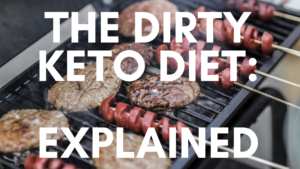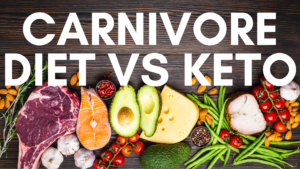In the diverse world of nutritional strategies, one approach that has gained significant attention is the ketogenic diet. This program, intriguing in its simplicity and effectiveness, hinges on a biological process known as ketosis. Here, we will explore ketosis, understanding its role in weight loss and overall health.
The Science of Ketosis
Ketosis is not just a diet trend; it’s a fundamental physiological state. It occurs when carbohydrate intake is drastically reduced, compelling the body to seek an alternative energy source: fat. This metabolic shift is not a modern invention but an ancient survival mechanism, enabling humans to thrive in times of food scarcity.
Carbohydrates are the body’s preferred energy source, easily converted into glucose. Athletes, for example, often load up on carbs to fuel their high-intensity performances. However, when carb intake is minimal, the body enters ketosis, turning to stored fat for energy. This process involves the transportation of fatty acids to the liver, where they are converted into ketone bodies, an efficient energy source.
The Ketogenic Diet: An Overview
The ketogenic diet is characterized by its low-carb, high-fat (LCHF) profile. By limiting carb intake, the program keeps the body in a near-constant state of ketosis. This shift from glucose to fat as a primary energy source is the core principle behind the diet’s effectiveness in weight loss.
Macronutrient Ratios
A typical ketogenic diet involves a drastic reduction in carbohydrates, moderate protein intake, and a significant increase in dietary fats. The exact macronutrient ratio can vary, but a common distribution is 70-80% fat, 15-20% protein, and 5-10% carbohydrates.
Foods to Eat and Avoid
Foods that are staples in a ketogenic diet include high-fat meats, fish, cheese, nuts, and low-carb vegetables. Foods to avoid or minimize include bread, pasta, sugar, grains, and high-carb fruits. The focus is on whole, unprocessed foods rich in fats and low in carbs.
Health Benefits and Weight Loss
The ketogenic diet’s appeal lies in its ability to induce rapid and sustained weight loss. By maintaining a state of ketosis, the body becomes more efficient at burning fat, leading to a decrease in body fat percentage. This process is beneficial for those experiencing a weight loss plateau, as a short period of intensified ketogenic eating can jumpstart fat burning.
Beyond Weight Loss
The benefits of ketosis extend beyond weight loss. Some studies suggest that a ketogenic diet can improve insulin sensitivity, which is crucial for managing diabetes. There’s also emerging evidence pointing to potential benefits in neurological conditions, like epilepsy, and in enhancing cognitive function.
Potential Risks and Considerations
While the ketogenic diet has many proponents, it’s not without its challenges. Transitioning into ketosis can sometimes lead to the “keto flu,” a temporary state marked by fatigue, headaches, and irritability. These symptoms typically subside as the body adjusts.
It’s also important to maintain a balanced intake of nutrients. A diet high in fats and low in carbs can sometimes lead to deficiencies in certain vitamins and minerals, making supplementation necessary for some individuals.
Conclusion: A Sustainable Approach?
The ketogenic diet represents a profound shift in how we think about fueling our bodies. By understanding and harnessing the power of ketosis, this diet offers a viable path to weight loss and improved health. However, like any diet, it requires thoughtful consideration and should be tailored to individual health needs and goals.
As we continue to explore the realms of nutrition and physiology, the ketogenic diet stands as a testament to the body’s remarkable adaptability and the ongoing quest for optimal health.





